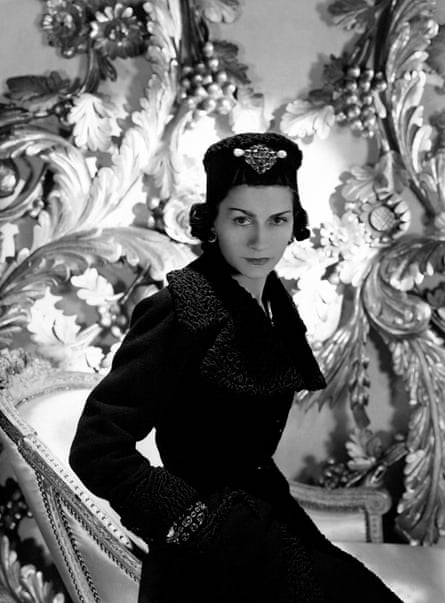Anne Borre Events & Insights
Exploring the latest trends and stories from Anne Borre.
Chanel: Where Elegance Meets Rebellion
Discover how Chanel fuses timeless elegance with rebellious spirit. Uncover the bold essence of a fashion revolution today!
The Timeless Appeal of Chanel: Balancing Elegance and Rebellion
The allure of Chanel lies in its extraordinary ability to fuse classic elegance with an air of rebellion, a dichotomy that has captivated fashion enthusiasts for generations. Founded by Coco Chanel in the early 20th century, the brand revolutionized women's fashion by introducing a more relaxed silhouette that emphasized comfort without sacrificing style. This groundbreaking approach not only challenged the norms of the time but also laid the foundation for a new era of femininity, where ladies could feel both sophisticated and fierce. The iconic Chanel No. 5 perfume and the classic quilted handbag are testaments to the brand's timeless appeal that transcends seasons and trends.
At the heart of Chanel is an enduring spirit of rebellion that serves as a counterbalance to its refined aesthetics. From the little black dress that defied conventional color palettes to the bold use of chains and leather, Chanel empowers women to express their individuality. The brand continues to resonate with modern consumers, as it embodies a narrative of strength and independence. This unique blend of elegance and audacity not only solidifies Chanel's legacy but also inspires new generations to embrace their personal style with confidence.

How Coco Chanel Redefined Fashion and Feminism
Coco Chanel was a revolutionary figure in the fashion industry, not only for her innovative designs but also for her profound impact on feminism. Prior to her influence, women’s fashion was characterized by restrictive garments that symbolized societal constraints. Chanel disrupted this norm by introducing a more liberating style, exemplified by the iconic little black dress and the casual elegance of her tweed suits. With a focus on comfort and functionality, Chanel encouraged women to embrace their individuality and to prioritize their own comfort over societal expectations.
Moreover, Chanel's designs promoted a sense of independence, allowing women to break free from patriarchal limitations. She famously stated,
“I invented my life by taking advantage of the possibilities that were offered to me.”This sentiment resonates with the ideals of feminism, as she emphasized empowerment through self-expression. By creating clothing that supported a woman's active lifestyle and professional aspirations, Chanel not only redefined fashion but also provided a framework for women to assert their place in society, intertwining the worlds of fashion and feminism in a way that continues to inspire today.
Chanel's Iconic Pieces: Symbols of Both Luxury and Defiance
Chanel has long been synonymous with luxury, but its iconic pieces also represent a spirit of defiance against traditional fashion norms. From the classic Chanel No. 5 perfume to the revolutionary little black dress, these creations challenge the status quo while embodying elegance. The use of simple lines and timeless silhouettes allows these pieces to transcend trends, signifying not only a high-end lifestyle but also a bold stance on personal style. Each item tells a story of empowerment, encouraging individuals to express their unique identity without fear of societal expectations.
Among Chanel's most notable emblematic items is the Chanel suit, a symbol of women's liberation in the realm of fashion. This tailored ensemble breaks away from the restrictive designs of the past, empowering women to embrace both femininity and power. Another iconic staple is the Chanel 2.55 handbag, which marries chic design with practicality, challenging misconceptions that luxury must sacrifice functionality. Together, these pieces illustrate how Chanel has not only set trends but also sparked a movement—making luxury synonymous with defiance, while encouraging women to assert their identity through style.